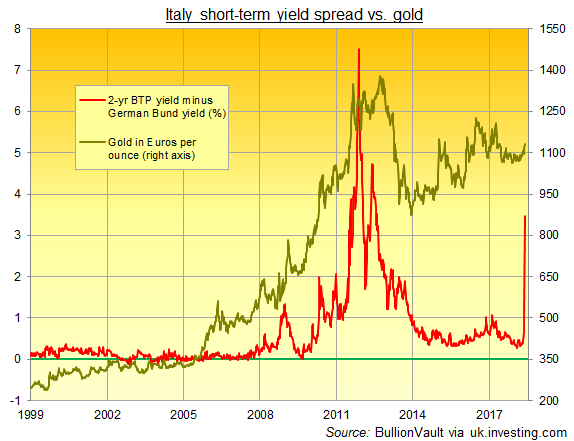Italy, Who Wins? The Market, the Euro or Voters?

We use cookies (including third-party cookies) to remember your site preferences, to help us understand how visitors use our sites and to make any adverts we show on 3rd party sites more relevant. To learn more, please see our privacy policy and our cookie policy.
To agree to our use of cookies, click 'Accept' or choose 'Options' to set your preferences by cookie type.


Adrian Ash is director of research at BullionVault, the world-leading physical gold, silver and platinum market for private investors online. Formerly head of editorial at London's top publisher of private-investment advice, he was City correspondent for The Daily Reckoning from 2003 to 2008, and he has now been researching and writing daily analysis of precious metals and the wider financial markets for over 20 years. A frequent guest on BBC radio and television, Adrian is regularly quoted by the Financial Times, MarketWatch and many other respected news outlets, and his views from inside the bullion market have been sought by the Economist magazine, CNBC, Bloomberg, Germany's Handelsblatt and FAZ, plus Italy's Il Sole 24 Ore.
See the full archive of Adrian Ash articles on GoldNews.
Please Note: All articles published here are to inform your thinking, not lead it. Only you can decide the best place for your money, and any decision you make will put your money at risk. Information or data included here may have already been overtaken by events – and must be verified elsewhere – should you choose to act on it. Please review our Terms & Conditions for accessing Gold News.
BullionVault Ltd © 2024
We use cookies to remember your site preferences, record your referrer, improve the performance of our site and to make any adverts we show on 3rd party sites more relevant. For more information, see our cookie policy.
Please select an option below and 'Save' your preferences.
You can update your cookie preferences at any time from the 'Cookies' link in the footer.
You have not been active for some time.
For your security you will be logged out in minutes unless you take action.